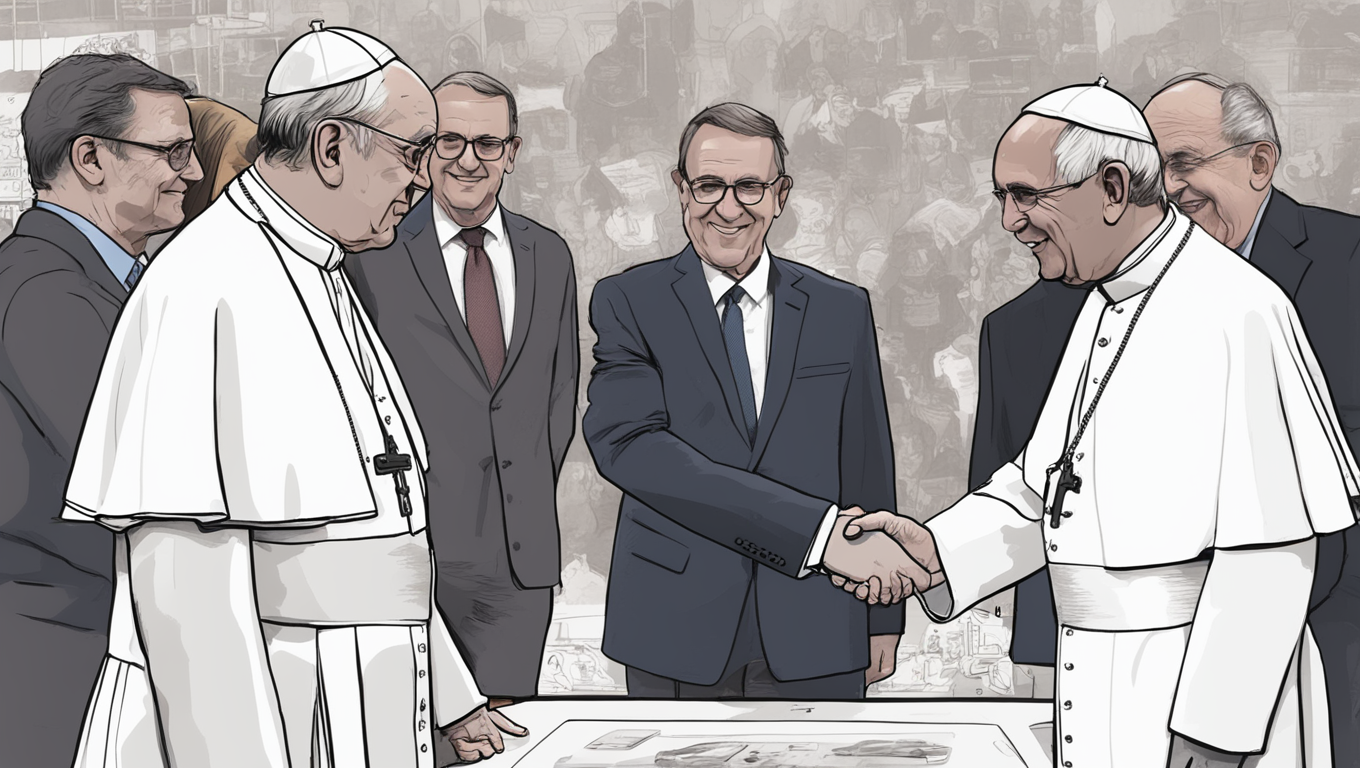In a groundbreaking move, Pope Francis is set to attend the G7 summit and actively participate in discussions centered around artificial intelligence (AI). Federico Meloni, the undersecretary for the Vatican’s Ministry of Foreign Affairs, announced the Pope’s participation, emphasizing the need for a regulatory and ethical framework for AI development. Meloni believes that the presence of His Holiness will be instrumental in shaping the future of AI.
Pope Francis has been vocal about his concerns regarding the ethical implications of AI. He has called for an international treaty to ensure that AI is developed and utilized with ethical considerations in mind. In fact, the Pontifical Academy for Life, the Vatican’s bioethics think tank, has been spearheading a campaign to engage tech corporations, academic institutions, and non-governmental organizations in pledging to uphold ethical standards in AI development and use. Just this week, Cisco Systems became the latest signatory to join this initiative.
The rise of AI has captivated the world, with cutting-edge systems like OpenAI’s ChatGPT demonstrating the ability to generate human-like text, photos, and songs. However, this rapid development has also raised concerns about job displacement, privacy issues, copyright protection, and even potential threats to human life. The G7 foreign ministers, who met recently in Capri, Italy, emphasized the importance of addressing the risks posed by AI to cybersecurity. They acknowledged the need for safe, secure, and trustworthy AI that remains human-centric and respects human rights.
The Vatican’s call for global regulation and ethical AI development aligns with growing concerns worldwide. Governments, organizations, and individuals are recognizing the need to implement safeguards for AI technologies. By participating actively in the G7 summit, Pope Francis brings the moral voice of the Catholic Church to the table. His presence is expected to have a profound impact on shaping the discussions and decisions surrounding the regulation and responsible use of AI.
As the world grapples with the ever-advancing capabilities of AI, it is essential to strike a balance between technological progress and safeguarding human values. Pope Francis' involvement in these discussions underscores the urgency and importance of addressing the ethical implications of AI. His strong stance on the issue, coupled with the support of the Pontifical Academy for Life, lends credibility and adds a moral dimension to the ongoing debates.
In the words of Pope Francis himself, “Artificial intelligence, robotics and other technological innovations must be so employed that they contribute to the service of humanity and to the protection of our common home, rather than to the contrary, as some assessments unfortunately foresee.” With this comprehensive approach, Pope Francis continues to champion the cause of ethics and responsible development in the rapidly evolving world of AI.
The G7 summit, enriched by the presence of Pope Francis, promises to be a pivotal moment in the quest for global AI regulation. The world will be watching as leaders and experts gather to shape the future of AI, guided by principles of ethics, cultural understanding, and respect for human dignity. It is a testament to the increasingly interconnected and complex challenges we face as we navigate the frontiers of technology and strive for a better world.





Use the share button below if you liked it.